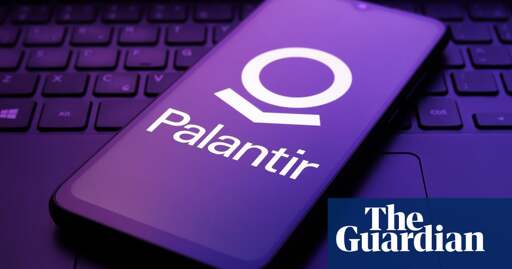A Little-Known Microsoft Program Could Expose the US Defense Department to Chinese Hackers
-
This post did not contain any content.
-
This post did not contain any content.
TLDR: They are talking about Chinese coders hired by MS have access to DoD related code, not a computer program.
-
TLDR: They are talking about Chinese coders hired by MS have access to DoD related code, not a computer program.
Thanks. Was going to say that, too.
I will hand it to the writer: good use of clickbait. It got me and it was technically accurate.
-
TLDR: They are talking about Chinese coders hired by MS have access to DoD related code, not a computer program.
Thank you for being on the front lines of the click bait war.
-
This post did not contain any content.
Wow. That's pretty bad.
-
TLDR: They are talking about Chinese coders hired by MS have access to DoD related code, not a computer program.
Here I thought it was going to be about telnet or something
-
Here I thought it was going to be about telnet or something
Fun Fact: I once worked with a team that were mapping Iran's internet infrastructure... for reasons. One of the ways we were able to zero in on the more important systems was because we kept finding these weird Cisco routers that had Telnet exposed to the open internet. All of which just so happened to share neighboring IPs (or close enough) with some pretty serious government systems. Fun times.
I'm not a CISCO tech, so I don't know the specifics beyond that. But I do remember that the Telnet connection would permanently ban any IP that failed even a single password attempt. So they had that going for them, I guess lol
-
Fun Fact: I once worked with a team that were mapping Iran's internet infrastructure... for reasons. One of the ways we were able to zero in on the more important systems was because we kept finding these weird Cisco routers that had Telnet exposed to the open internet. All of which just so happened to share neighboring IPs (or close enough) with some pretty serious government systems. Fun times.
I'm not a CISCO tech, so I don't know the specifics beyond that. But I do remember that the Telnet connection would permanently ban any IP that failed even a single password attempt. So they had that going for them, I guess lol
I once worked for a fairly large multinational and was the main data center admin.
We ordered two separate comcast business account lines to serve as an emergency management network juuuuuuuuuuuust in case everything enterprise level went down. A true catastrophe somewhere else.
My boss put a windows xp box on it, and it alone with a single linux router in between it any the internet, totally insecure except for fail2ban and port knocking.
The entire time we were waiting for the rest of the data center to be wired it stood up, never being penetrated. Maybe a month or so.
BUT we’d banned basically the entire public IP space.
This was back in the early 2010s
-
I once worked for a fairly large multinational and was the main data center admin.
We ordered two separate comcast business account lines to serve as an emergency management network juuuuuuuuuuuust in case everything enterprise level went down. A true catastrophe somewhere else.
My boss put a windows xp box on it, and it alone with a single linux router in between it any the internet, totally insecure except for fail2ban and port knocking.
The entire time we were waiting for the rest of the data center to be wired it stood up, never being penetrated. Maybe a month or so.
BUT we’d banned basically the entire public IP space.
This was back in the early 2010s
I've actually seen medical offices setup similarly. Some random computer in a back office with all of their patient data on it, completely exposed to the internet, protected by nothing but a few Windows Firewall rules limiting the connections to a few IP blocks. Just so they can share information office-to-office for say... a root canal and dental crown to be done on the same day, but at 2 separate locations due to limited space.
I'd run out of fingers if I were to count the number of times I've seen similar setups, 3-4 toes would be needed at least.
-
I've actually seen medical offices setup similarly. Some random computer in a back office with all of their patient data on it, completely exposed to the internet, protected by nothing but a few Windows Firewall rules limiting the connections to a few IP blocks. Just so they can share information office-to-office for say... a root canal and dental crown to be done on the same day, but at 2 separate locations due to limited space.
I'd run out of fingers if I were to count the number of times I've seen similar setups, 3-4 toes would be needed at least.
Terrifying.
We did it just as a for funsies test, when we actually began to put equipment in it was all properly secured.
-
-
-
California’s Corporate Cover-Up Act Is a Privacy Nightmare: it would let corporations spy on us in secret, gutting long-standing protections without a shred of accountability.
Technology 1
1
-
-
OpenAI supremo Sam Altman says he 'doesn't know how' he would have taken care of his baby without the help of ChatGPT
Technology 1
1
-
-
Meta(Facebook) and Yandex apps silently de-anonymize users’ browsing habits without consent.
Technology 1
1
-




